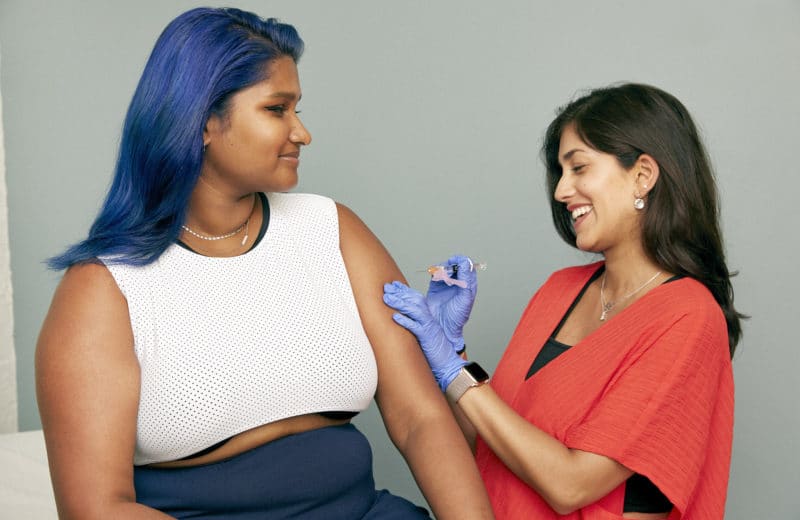Chicago’s fall weather has been unseasonably warm, but don’t be fooled. Winter is coming and, with it, the flu.
Influenza is a contagious respiratory virus that can impact the nose, throat and lungs. The severity of the illness ranges from mild to severe, and in its worst cases can lead to hospitalization or even death. Flu-related deaths can reach as high as 49,000 in a given season, according to the Centers for Disease Control and Prevention (CDC),
There are ways to protect yourself, the easiest of which is an annual flu shot.
“The flu is one of our preventable illnesses,” says Kwame Foucher, MD, senior medical director of UnitedHealthcare of Illinois. “The flu affects those in all climates, but being a cold weather climate we experience the flu in high volumes here. The shot helps prevent this problem.”
This year the CDC has made changes to its annual flu shot recommendations. For the upcoming winter season, the CDC does not recommend using the nasal spray flu vaccine, citing the spray’s ineffectiveness when it comes to protecting against the spread of the virus. In the past, the nasal spray was recommended for young children, Foucher says. Now, the CDC is recommending that anyone six months or older get the injectable vaccine.
Also new this winter season is the CDC’s recommendation for people with egg allergies. The flu vaccine is incubated in chicken eggs, but the CDC now says that individuals with a mild egg allergy can receive the flu vaccine and no longer be monitored for 30 minutes afterward. That being said, if you have a severe egg allergy, you should be vaccinated in a medical setting with supervision to ensure immediate care if a severe allergic reaction occurs.
Why the flu shot matters
In a study published in The Journal of Infectious Diseases, researchers discovered that from 2010 to 2012, children ages six months to 17 years who received the flu vaccine reduced their risk of admittance to the pediatric intensive care unit by 74 percent.
A separate study published this summer in Clinical Infectious Diseases found that individuals 50 years and older who got the vaccine lowered their risk of hospitalization by 57 percent.
Foucher explains that those two populations, as well as individuals with chronic illnesses, are the most likely to have complicated or poor outcomes from the flu, including severe illness. The CDC also recommends that pregnant women and their families get the flu shot as a preventative measure.
Foucher offers four tips on how to best protect against the flu:
- Get the flu shot. Hands down, he says, this is the most important prevention mechanism.
- Cover your mouth when you cough and sneeze.
- Wash your hands on a regular basis.
- Do not go to work if you feel sick. “If you’re not feeling well,” Foucher says, “please stay home for your sake and the sake of everyone in your office.”
The more people who get the vaccine, the better, he says.
“If a critical number in the population get the vaccination, it helps out everyone,” Foucher says. “The more people who get it, the less likely the flu becomes an epidemic.”
It takes approximately two weeks for the body’s immune system to fully respond to the vaccine, so now is a great time to schedule your annual flu shot.
For more information about flu shots and to find a location near you that provides them, visit CDC.gov.











